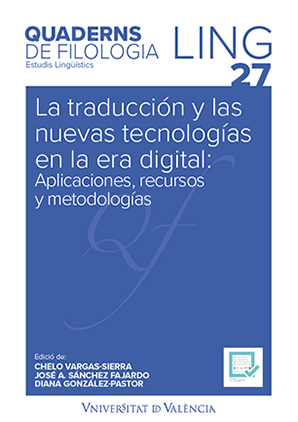Big data to assess genre-specific features of the machine translation output of online travel reviews in Spanish
DOI:
https://doi.org/10.7203/qf.0.24667Keywords:
Machine translation, post-editing, consumer generated content, big data, tourism reviews. Abstract
Abstract
Big data analysis such as user-generated content and specifically online consumer reviews has attracted considerable attention in recent years due to its numerous research opportunities and commercial applications in almost all fields of knowledge. The origin of this digital genre in the oral tradition highlights the spontaneous features of the spoken language that are reflected in the written text that has its own characteristics depending on the user’s culture and language. By comparing a corpus of 2,000 reviews, this paper proposes the identification and analysis of the unique characteristics of this new digital genre to determine the behavior of machine translation of users' reviews into Spanish. Thus, the aim of this work is to study the tourism reviews translated into Spanish and identify how MT handles the main characteristics that confer naturalness and credibility to this genre.
 Downloads
Downloads
Downloads
Published
How to Cite
-
Abstract688
-
PDF (Español)424
Issue
Section
License
 Este obra está bajo una licencia de Creative Commons Reconocimiento-NoComercial-SinObraDerivada 4.0 Internacional.
Este obra está bajo una licencia de Creative Commons Reconocimiento-NoComercial-SinObraDerivada 4.0 Internacional.
Authors who publish with this journal agree to the following terms:
- Authors retain copyright and grant the journal right of first publication with the work simultaneously licensed under a Creative Commons Attribution License that allows others to share the work with an acknowledgement of the work's authorship and initial publication in this journal.
- Authors are able to enter into separate, additional contractual arrangements for the non-exclusive distribution of the journal's published version of the work (e.g., post it to an institutional repository or publish it in a book), with an acknowledgement of its initial publication in this journal.
- Authors are permitted and encouraged to post their work online (e.g., in institutional repositories or on their website) prior to and during the submission process, as it can lead to productive exchanges, as well as earlier and greater citation of published work (See The Effect of Open Access).



